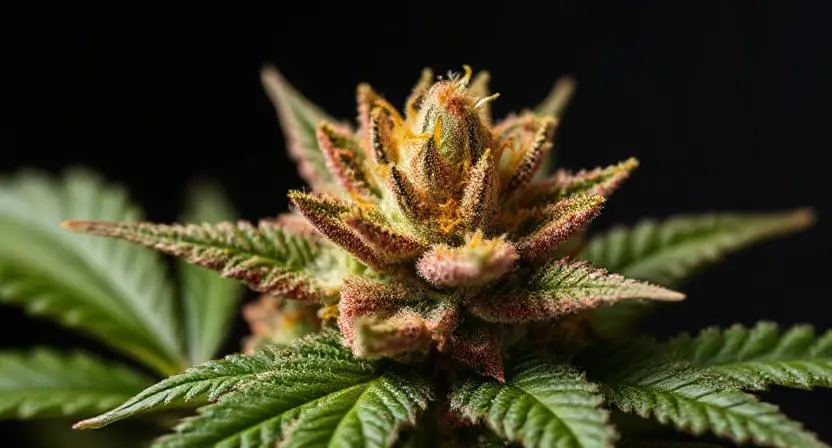What Is THCA Flower?
As awareness around cannabinoids evolves, THCA flower has become a sought-after option for consumers seeking alternatives to traditional cannabis products. THCA, or tetrahydrocannabinolic acid, is a cannabinoid present in the raw, unheated form of cannabis. Unlike THC, THCA doesn’t induce intoxication until it is heated through smoking, vaping, or cooking—a process called decarboxylation. This non-psychoactive nature makes it appealing for those who want to explore the benefits of cannabis without experiencing the high typically associated with THC.
What’s unique about THCA flower is that it delivers the full spectrum of compounds naturally occurring in the cannabis plant, offering a nuanced experience. Many wellness-minded individuals are curious about THCA flower as part of their holistic health journey, leveraging its properties before any conversion to THC occurs. As this segment of the hemp market expands, reputable suppliers are making it easier for consumers to access high-quality, lab-tested THCA flower.
How Does THCA Differ From THC?
Understanding the distinction between THCA and THC is crucial for informed decision-making. In its natural, unprocessed state, THCA is not psychoactive. Only when it undergoes decarboxylation (heating) does it become THC, which is the compound responsible for the characteristic cannabis high. This means that consuming raw THCA flower—for instance, by juicing or adding it to salads- will not result in intoxication. The chemical conversion that transforms THCA into THC is a key consideration for users interested in the potential health benefits associated with cannabinoids, without the mind-altering effects.
The differences between these compounds impact not just effects, but also legal status and applications. Those seeking more scientific detail can find a comprehensive review of cannabinoid chemistry and decarboxylation in publications. Recognizing the nuances helps consumers select products aligned with their wellness or recreational goals.
The Legal Landscape of THCA Flower
The legal status of THCA flower in the United States remains a complex and region-specific issue that varies significantly across different states and jurisdictions. While THCA itself is non-intoxicating and is considered legally distinct from THC under certain federal regulations, its legality often depends on local laws and interpretations. The 2018 Farm Bill federally legalized hemp and hemp-derived products that contain less than 0.3% delta-9 THC by dry weight, which includes many CBD products and other hemp derivatives. However, not all states interpret these federal guidelines in the same way, particularly when it comes to products like THCA flower that have the potential to be converted into psychoactive THC through processes such as decarboxylation. This creates a complex legal landscape where compliance and enforcement can vary widely, making it essential for consumers and producers to stay informed about the specific laws applicable in their region and to understand that these regulations are subject to change over time.
Potential Benefits and Uses
Preliminary research and anecdotal reports suggest a variety of promising applications for THCA. Early evidence indicates potential anti-inflammatory, anti-emetic, and neuroprotective properties. Some users seek out THCA flower hoping for relief from discomfort or to support mood and general wellness without the psychoactive effects of THC. Others incorporate raw THCA into health routines due to its gentle, non-intoxicating nature and the presence of other synergistic cannabinoids and terpenes found in the whole plant.
Despite growing popularity, most of the scientific inquiry is still in its initial stages. Consumers are encouraged to balance anecdotal experiences with emerging research, paying attention to updates from reputable institutions for ongoing scientific developments regarding cannabis and related compounds.
Safety and Side Effects
For most individuals, THCA is considered safe and is well-tolerated when consumed responsibly in its raw form. However, heating THCA flower, such as smoking or vaping, converts it to THC, which introduces psychoactive effects and the risk of overconsumption. Potential side effects after decarboxylation include dizziness, dry mouth, altered cognition, and, rarely, paranoia, symptoms similar to conventional THC-rich cannabis use.
It’s advisable for those with health conditions or who are taking medication to consult with a healthcare provider before using any cannabinoid product. Adolescents, pregnant or breastfeeding individuals, and people with certain psychiatric conditions should use additional caution or avoid such products altogether. Above all, moderation and attentive self-monitoring are wise approaches in navigating the evolving world of cannabis wellness.
How to Identify High-Quality THCA Flower
Third-Party Lab Testing
Reputable THCA flower retailers provide transparent, third-party laboratory results verifying cannabinoid content, absence of pesticides, heavy metals, and other contaminants. Reviewing these lab reports prior to purchasing protects both your health and your investment.
Aroma, Appearance, and Moisture
High-quality THCA flower should look vibrant, covered in trichomes, and be free of excessive stems or seeds. The smell—often rich and pungent—signals a fresh, well-cured product. Beware of overly dry or musty flowers, which can indicate poor storage or age.
Proper Storage Practices
To preserve potency and prevent degradation, store your flower in airtight containers away from heat, light, and moisture. A cool, dark environment will help retain freshness and cannabinoid integrity over time.
Prioritize transparent vendors with positive reputations among consumers and industry watchdogs.
What Future Research Suggests
The scientific landscape around THCA is rapidly developing. Early studies highlight its distinctive effects and applications compared to THC, but larger, long-term studies are needed. As more is uncovered about THCA and its interaction with the human endocannabinoid system, industry standards, legal definitions, and best practices will evolve accordingly. Consumers should continue monitoring reputable medical, scientific, and industry sources for latest findings, and be prepared to adapt choices as new information becomes available.
Remaining up-to-date empowers users to safely and confidently incorporate THCA flower into their wellness routines as the body of evidence grows.
Final Thoughts
THCA flower represents a fascinating intersection of cannabis science, wellness, and evolving legislation. Its non-psychoactive properties, potential therapeutic benefits, and versatility in consumption make it an appealing choice for those seeking a gentler introduction to cannabinoids. Yet, its legal status and effects after heating require careful consideration and responsible use.
By staying informed, sourcing only high-quality, lab-tested products, and respecting personal limits, consumers can make the most of what THCA has to offer. As research expands and regulations adapt, THCA flower is likely to play a growing role in conversations about cannabis and holistic health. The key is to remain curious, cautious, and committed to making choices that align with both your wellness goals and the law.














Leave a comment